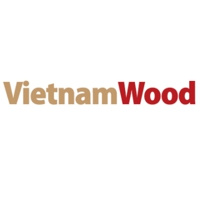- Read all
- Rice
- Fisheries
- Cassava
- Fertilizer & Pesticide
- Coffee
- Animal Feed
- Cocoa
- Seed
- Tea
- Wood
- Pepper
- Agricultural Cooperations
- Cashew
- Agricultural Investments
- Rubber
- Governmental Policies
- Sugarcane
- Agricultural Startup Ecosystem
- Corn
- Technological Innovations
- Spices
- Organic Agriculture
- Bean
- Food Manufacturing
- Fruit & Vegetable
- Agricultural Value Chain
- Flower
- Water & Waste Management
- Meat
- Processed Food
- Dairy
- Plant Originated Products
- General Agro Commodities
- Animal Originated Products
What is the key to helping Vietnamese agricultural products go to China?
May 20, 2022
Nearly 2,000 enterprises have been granted export product codes
Sir, according to statistics, the Chinese market currently accounts for 50 to 55% of Vietnam's total export of fresh agricultural products and vegetables, so how can our agricultural exports not be affected in the future? In the context of China tightening food safety management, managing risks related to epidemics on imported and exported goods?
China is a large and traditional market for Vietnam. This country is both an exporter of agricultural products and the largest importer of agricultural products in the world. On average, each year China imports from 160-170 billion USD of all kinds of agricultural products, food, feed ingredients for production, food processing and other supporting industries.

Mr. Le Thanh Hoa, Director of SPS Vietnam Office. Photo: Nguyen Hung.
However, recently, China has had a lot of changes in its policies as well as in the management and control system of food safety for import and export. Their regulations are getting stricter. China requires countries that export food products to the domestic market to register a list and issue a code.
As of May 17, 2022, the General Administration of Customs of China has granted 2,069 food product codes of animal and plant origin to 1,993 Vietnamese enterprises that are allowed to export to this market. However, according to Chinese regulations, this is only the first stage for the registration of food exports to the Chinese market. Enterprises that have been issued with codes need to continue to complete the supplement of dossiers of each enterprise from now until June 30, 2023 according to the guidance of the General Department of Customs of China in Note 353/2021: license business, records related to the management and supervision of product processing; records related to the control issues of food insecurity, especially the prevention of disease cross-contamination on packaging, means of transporting agricultural products and food.
China continues to maintain the "Zero Covid" policy, so it pays great attention to the prevention of Covid-19 virus infection. The packaging and food products exported to China are closely monitored by your side. This leads to a delay in the customs clearance of food products imported into China, not only from Vietnam but also from other countries, causing a congestion of cargo trucks like at the end of last year. and the first months of 2022.
So in the past time, how has the SPS Vietnam Office received information about cases related to the phenomenon of Covid-19 virus cross-infection on packaging and products?
In fact, in the past 2 years, China has had a lot of notices and warnings about cross-contamination of the Covid-19 virus on product packaging, including a case with fresh Vietnamese fruit products. export to China. However, the quantity is not much and usually, when so detected, your side will stop customs clearance and notify us to take remedial measures. Many batches of dragon fruit and recently bananas were found to have Covid on the packaging.
In this regard, the Department of Agro-Forestry-Fisheries Quality Management has disseminated all FAO regulations to agro-forestry-fishery processing enterprises to ensure how to ensure good practice in relaxation. isolation and isolation to avoid Covid cross-contamination on product packaging as well as containers containing goods exported to China.
Basically complete risk assessment for sweet potatoes, durian
Sir, how is the coordination between Vietnam and China to assess risks and control food safety for imported and exported goods?
For all food products, the risk assessment will be carried out by the Import and Export Food Safety Bureau (General Administration of Customs of China). And we know, China has a lot of big trading partners and a lot of different product lines, while resources are limited. Therefore, the risk assessment of food products is difficult, and delays are inevitable.
However, it should be noted that China has a lot of incentives for Vietnamese food and vegetable products. Recently, we have 9 kinds of fruit officially exported to the Chinese market, in the near future we will add durian, sweet potato, passion fruit ..., of which durian, sweet potato have basically completed the assessment. risk.

China has agreed to let us pilot the export of passion fruit through border gates in Guangxi province.
According to the announcement from the Vietnamese Embassy in Beijing at TCO CTD 1120 on November 26, 2021, China has agreed to let us pilot the export of passion fruit through border gates in Guangxi province. Therefore, businesses and localities need to pay attention to this issue, and coordinate well with the Plant Protection Department to meet the requirements of the Chinese side, especially conditions such as planting area codes, growing conditions. of the packing establishment, the conditions for enterprise registration. We must be well prepared for this.
As far as I know, there is currently no Vietnamese passion fruit exporter that has registered or implemented activities related to the requirements from the Chinese market.
In your opinion, why have enterprises exporting passion fruit to the Chinese market not registered to complete official export procedures at the request of your country?
Part of the reason is that the Ministry of Agriculture and Rural Development has just received information from the Vietnamese Embassy in China, so the implementation has not been strong. In addition, in recent years, the production of passion fruit has faced many difficulties due to disease and crop failure.
Now, if we want to have good product quality, we need to build planting areas as well as take appropriate measures to control disease problems. In particular, it is necessary to build areas of good raw materials and good products. Otherwise, no matter how we promote trade, how open the market is, in the end there will be no qualified goods for sale.
We still talk about building a brand, but the brand must always go hand in hand with quality and ensure the supply of products to the market. And if we have quality but do not guarantee the supply at the times when the market needs it, it will create a disruption in supply and demand, discouraging consumers.
In addition, we must also promote advertising and trade promotion programs for Vietnamese agricultural products in the Chinese market, especially with each key product such as dragon fruit, jackfruit, mango, pineapple, and lemon. climbing or durian...
As an agency connecting agricultural product market development, when the Covid-19 epidemic in China is under control, we will strengthen connections with corporations and major agricultural product consumption hubs in your country. to bring our products into this market.
The key to success: Applying good practice standards
In the coming time, how will the SPS Office coordinate with agencies, units, localities and businesses to implement Orders 248, 249 of your country?
We must clearly define, quality agricultural products create a brand. Therefore, depending on each of their key products, they must build areas of quality raw materials. In parallel, there are good production practice programs for each type of fruit such as VietGAP, GlobalGAP, etc.
The application of good practice standards is the key to our good quality products as well as the credibility of the market. If we cannot ensure this, fresh vegetables and fruits from Vietnam to China will continue to face many difficulties.

Durian has basically completed a risk assessment for official export to China.
Especially, when Orders 248 and 249 are issued, your side is ready to coordinate with Vietnamese competent authorities to check online. However, it must be admitted that there are still some Vietnamese enterprises that are not well prepared despite being guided by competent authorities.
For example, in food processing factories, it is necessary to limit the entry of insects, birds and animals into the warehouse because they can carry microorganisms. Birds can carry bird flu, and litter can be contaminated with E.coli or Salmonella. Dogs and cats can infect pathogens and parasites from feces, urine... Besides, there must be a program to prevent harmful insects and animals in processing plants and processing areas.
In the near future, the SPS Office will coordinate with the Vietnam Agriculture Newspaper to deploy training activities for localities and businesses to comply with the provisions of Orders 248 and 249 on topics appropriate to each industry and each industry. groups of businesses and localities have similar conditions. Thereby promoting the export of Vietnamese agricultural products and food to the Chinese market.
Thank you Sir!
Source: Minh Phuc - Nguyen Hung - nongnghiepviet.vn
Related news
-
Growing organic oranges is difficult to do but the price is twice as high
Tuyen Quang In this year's orange crop, organic orange growers in Ham Yen district (Tuyen Quang) earned hundreds of millions of dong in profit because oranges were well priced and accepted by the demanding market.November 24, 2022 -
Heighten Vietnam - USA cooperation relationship through agriculture
(VAN) Through 8 proposals to the new US Agricultural Counselor, Deputy Minister Nguyen Hoang Hiep hoped that trade between the two countries would soon regain its growth momentum.November 23, 2022 -
World wheat prices soar, India seizes export opportunities
India completed deals to export half a million tonnes of wheat in recent days and is expected to sign more contracts to take advantage of record-high global prices.November 22, 2022 -
Analysis: Factors driving world rice prices in the coming time
Movements from India and China, the Russia-Ukraine conflict, droughts in Brazil and Paraguay can all affect the global rice marketNovember 18, 2022
Events See more

Vietnamplas 2022 - Vietnam International Plastic and Rubber Industry Exhibition
23-03-2023 - 26-11-2022 09:00 - 17:00
Saigon Exhibition and Convention Center (SECC) – 799 Nguyen Van Linh Boulevard, District 7, City. Ho Chi Minh.

GROWTECH EXPO - FLORAPLANTEXPO 2021
02 - 05-11-2022 09:00 - 17:00
Saigon Exhibition and Convention Center (SECC) – 799 Nguyen Van Linh Boulevard, District 7, City. Ho Chi Minh.

VTG 2022
18 - 25-10-2022 09:00 - 17:00
Saigon Exhibition and Convention Center (SECC) – 799 Nguyen Van Linh Boulevard, District 7, City. Ho Chi Minh.

VIETSTOCK 2022 - SPECIALISED EXHIBITION OF LIVESTOCK, FEED AND MEAT PROCESSING IN VIETNAM
12 - 14-10-2022 08:00 - 17:00
799 Nguyen Van Linh, Tan Phu Ward, Dist. 7, Hochiminh City, Vietnam

VTG 2022
21 - 27-09-2022 09:00 - 17:00
Saigon Exhibition and Convention Center (SECC) – 799 Nguyen Van Linh Boulevard, District 7, City. Ho Chi Minh.
.png)
VIETFISH 2022
22 - 26-08-2022 09:00 - 17:00
Saigon Exhibition and Convention Center (SECC) – 799 Nguyen Van Linh Boulevard, District 7, City. Ho Chi Minh.
Business Opportunities See more
-
BURANI INTERFOOD is looking for Buyers in Vietnam
Type:
November 22, 2021
-
BURANI INTERFOOD is looking for Buyers in Vietnam
Type: Wholesaling Meat
November 22, 2021
-
BURANI INTERFOOD is looking for Buyers in Vietnam
Type: Wholesaling Meat
November 22, 2021
-
BURANI INTERFOOD is looking for Buyers in Vietnam
Type: Wholesaling Meat
November 19, 2021
-
BURANI INTERFOOD is looking for Buyers in Vietnam
Type:
November 19, 2021
-
Indian purchaser looking for high quality cashew nut kernel from Vietnam
Type: Exporting Cashew
Mar 14, 2016
534
Limitless database of qualified and verified agricultural partners
124
Exclusive buy & sell leads on specific agricultural commodities
24
Agricultural events in Vietnam and Asia Pacific region
Stay informed!
Enter your email address below to receive updates each time we publishes new content
